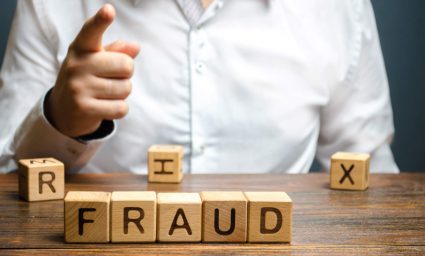 When facing financial challenges, it is entirely normal to feel a sense of overwhelm and desperation for viable solutions to improve your financial situation. The constant pressure of managing everyday expenses can make attractive offers seem like golden opportunities that are hard to resist. While we consistently caution against high-interest payday loans or excessive credit borrowing, it is crucial to remain vigilant even when confronted with seemingly legitimate financial aid options. Often, the funds that appear to be at your fingertips are, in reality, cleverly disguised traps set by unscrupulous scammers eager to exploit your vulnerabilities.
When facing financial challenges, it is entirely normal to feel a sense of overwhelm and desperation for viable solutions to improve your financial situation. The constant pressure of managing everyday expenses can make attractive offers seem like golden opportunities that are hard to resist. While we consistently caution against high-interest payday loans or excessive credit borrowing, it is crucial to remain vigilant even when confronted with seemingly legitimate financial aid options. Often, the funds that appear to be at your fingertips are, in reality, cleverly disguised traps set by unscrupulous scammers eager to exploit your vulnerabilities.
Currently, a wide array of scams is strategically designed to target individuals’ financial vulnerabilities, making it imperative to stay alert and informed. A fundamental guideline for spotting scams is simple: if an offer seems too good to be true, it probably is. In this detailed guide, we will outline several scams that specifically target individuals grappling with financial difficulties, equipping you with the necessary knowledge to differentiate between genuine financial opportunities and deceitful schemes.
Protecting Your Tax Refund: Essential Rights and Precautions
There are legitimate channels through which you can claim tax refunds for various eligible expenses, including work-related tools, uniforms, and mileage. However, these processes require you to engage with a tax rebate services company, which entails granting them access to your tax records. It is vital to recognize that no governmental entity, including HMRC, can accurately ascertain your entitled refund without your proactive involvement or consultation with a qualified accountant. Therefore, exercise caution when you receive unsolicited messages claiming that “HMRC has a tax refund of £261 waiting for you.” Such messages often present plausible amounts, skillfully avoiding the outlandish claims typical of other scams, like the infamous Nigerian Prince schemes. Instead, these messages can lead you to dubious websites where you might inadvertently share sensitive information, resulting in identity theft or significant financial loss.
To evaluate whether this communication is a scam, meticulously inspect the sender’s details. If you receive a text message, verify the originating phone number for authenticity. It is wise to refrain from responding to such messages and consider contacting HMRC directly for clarification. Bear in mind that HMRC generally communicates through letters or emails directed to your registered address, rather than through unsolicited text messages. Additionally, you now have the capability to access your own online tax account, where you can view notifications directly from HMRC. If you receive an email, scrutinize the sender’s address carefully; it should originate from an official HMRC domain. Always avoid clicking on any links provided in suspicious messages.
Identifying and Steering Clear of the National Insurance Number Scam
Recent reports, including those from the Daily Express, reveal that numerous individuals have fallen victim to the National Insurance scam, which predominantly operates through phone calls. This tactic sets itself apart from many others as scammers can reach you on either your landline or mobile device. The scam usually begins with a distressing message asserting that your national insurance number has been compromised, creating an artificial sense of urgency that compels you to press a button to speak with someone who can assist you. However, this action often results in being charged a premium rate for the call while the scammers collect your personal information.
To determine whether such a call is legitimate, remember that authentic organizations will never request that you press a button to continue the conversation. If you are uncertain about the call’s validity, simply hang up and conduct a quick online search for the phone number. A brief investigation can frequently reveal whether the number is linked to known scams, enabling you to protect yourself effectively.
Recognizing and Evading the DPD or UPS Delivery Scam
Another prevalent scam involves receiving unsolicited texts or emails stating that a parcel is awaiting your action. These communications typically urge you to click on a link to provide personal information, which is a significant red flag for potential fraud. To protect yourself, examine the source of the email carefully. Scammers often use distorted or unusual email addresses that do not correspond with legitimate businesses. Furthermore, check any recent orders you’ve made on platforms like Amazon or eBay; these platforms usually provide comprehensive tracking information to keep you informed.
It’s also crucial to note that while carriers like DHL may charge duties on international orders, they will always furnish you with specific details regarding your shipment and its origin. If you receive vague messages concerning package deliveries without having placed any prior orders, exercise extreme caution. Staying informed about personal finance scams is essential to safeguarding yourself from falling victim to such schemes. If financial difficulties make these scams seem alluring, consider reaching out to us; we may assist you with our debt consolidation loans for bad credit. We are here to help you navigate your financial challenges securely.
The Article Finance Scams to Watch Out For Was Found On https://limitsofstrategy.com


You’ve touched on such an important issue here. I remember a time when I was grappling with financial stress, and I came across what looked like a perfect solution—until I dug a little deeper and realized it was a scam. It’s so easy to get swept up in the desperation for quick fixes that we sometimes overlook the warning signs. Your advice on staying vigilant is crucial.
You’ve brought up a crucial point about financial stress and the allure of quick fixes. It’s a tricky situation. When we’re under pressure, it’s all too common to overlook the red flags, especially when something seems to promise immediate relief. Scams often thrive in these moments, playing on our vulnerabilities.